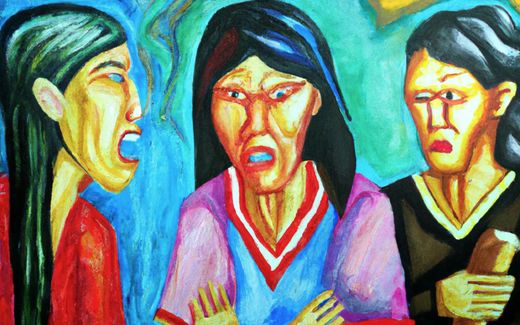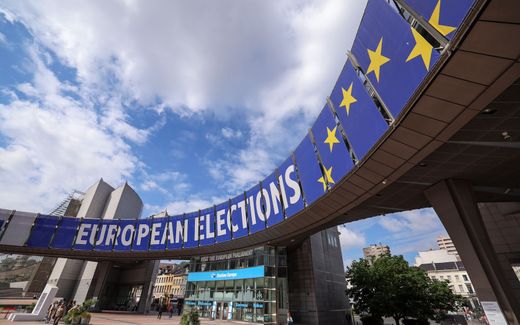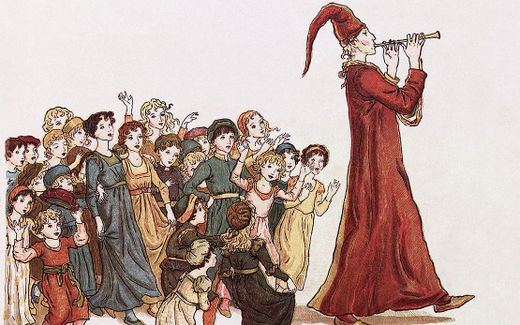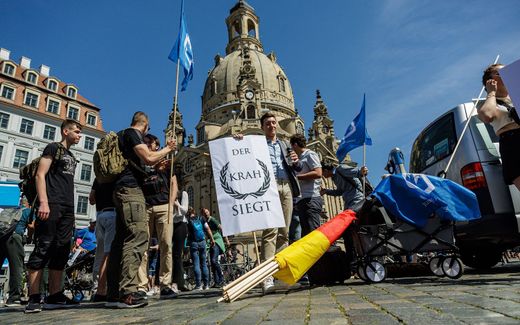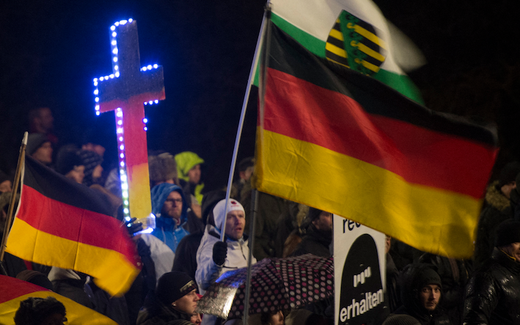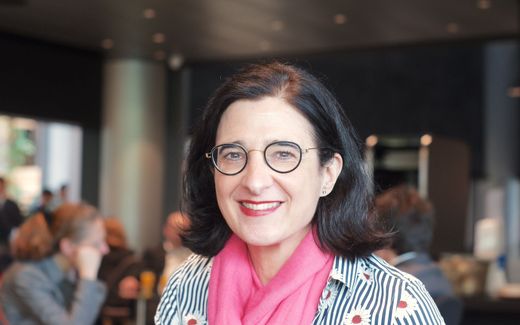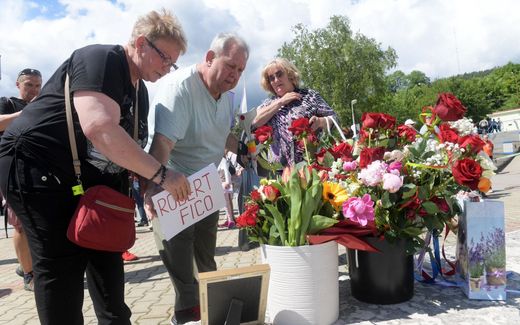How to make clear that Christian conservatism is not far-right
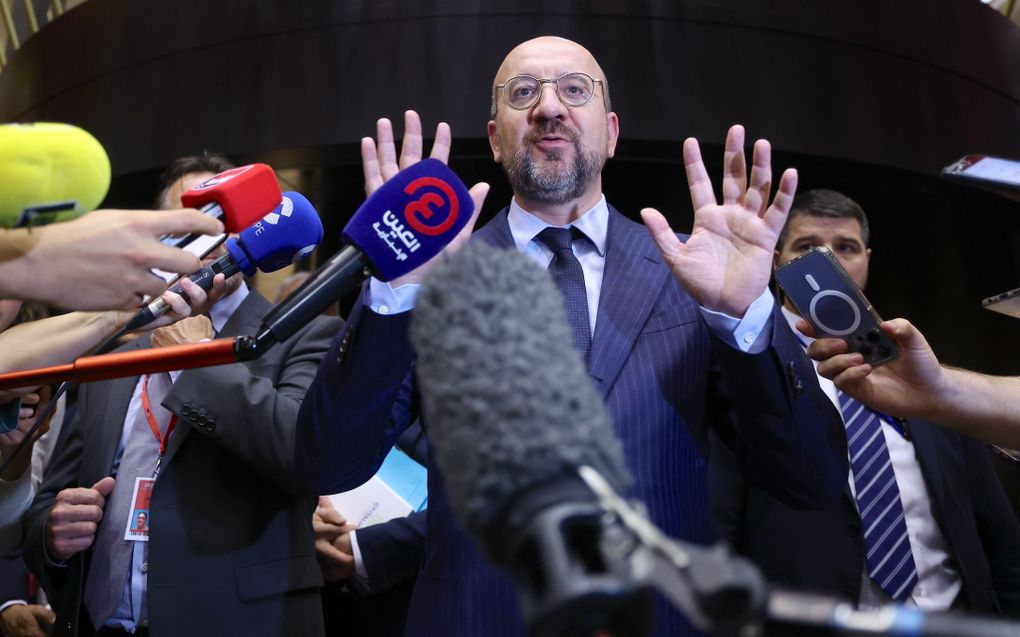
There is much insecurity in the EU. Photo EPA, Olivier Hoslet
European Union
The weeks before the European elections were an avalanche for Valeriia Petrechkiv. From her student apartment in Paris, France, she follows the EU integration of her home country, Ukraine. The lack of social glue in Europe is making her worried.
Over the last couple of years, I have had a chance to experience Europe in its full diversity. I studied in France and Lithuania, found refuge in the Netherlands after Russia’s war in Ukraine, and visited many countries as president of the European political youth party. Yet, like millions of other European citizens, the political turmoil of the last couple of months came as an avalanche.
Why was that? Firstly, the groundbreaking wins of the right-wing Alternative for Germany and National Rally in the EU elections in early June. Then, announcements of far-right consolidation around Orban’s Patriots for Europe. Finally, the unexpected turns of the French snap election. The shaken balance of power is hard to ignore.
With war raging in my country, Ukraine, all of those events are more than just a political gamble for me. They signal a much larger issue: the loss of collective social glue. One could not imagine a more fertile ground for populist narratives, extremist agendas, and quick political gains. The illness has spread like a fireball across many European states.
Newcomers
I worked in a Dutch agency for over a year, helping refugees with the job search and integration process. It was an ongoing collaboration between newcomers, host families, employers, and local governments, searching for solutions to labour market needs and opening homes to those in trouble. The nature of my positive experience prepared me little for the historic vote in favour of Wilders’s PVV’s hatred-based anti-immigrant, anti-Islam, and Nexit campaign rhetoric a few months later.
This pattern of riding the populist wave on surging economic and identity concerns is similar in many other European countries I have visited ever since. One shouldn’t be surprised as oversimplifying and creating an external enemy is much easier than offering the solutions to structural housing problems, taking accountability for gas dependency, or handling chronic national debt. No wonder we witness the rise in the Eurosceptic voices, using the disappointed and confused generation for electoral gains.
Such a rapid shift also concerns the general failure of liberal elitist politics. Society has grown tired of imposed gender ideology, bureaucratic walls of Brussels, lack of adequate support in the green transition targets, and little attempt to help us navigate the complex realities we live in.
People are clearly in search of a stable foundation of conservative politics. The politics that respect the importance of family, sacredness of life, and social stewardship. As we fight for this social fibre, it is now our homework not to confuse the evils of far-right with true conservatism.
As chair of the European Christian Political Movement (ECPM) youth group, I occasionally encounter analytics crediting the far right for pushing mainstream politics to the conservative centre. Yet this is neither a sustainable long-term nor ethical approach worthy of God’s vision for society.
From the Gospels, I have concluded that the Lord Jesus was tough and direct in criticising His enemies, yet He was never manipulative in His tactics. As Christians, we are called to be the light and salt of the Earth, serving as the example of God’s righteousness, justice, and love.
It is not acting in love when we villainise a particular group or engage in white supremacist idealisation. There are no attempts to exacerbate social tensions, restrict freedom of expression, and practice aggressive nationalistic messaging.
Such an approach makes excellent media headlines but has little in common with sustainable citizen-oriented governance. And some sobering truth for politicians, such an extremist approach may backfire in people starting to resent genuine upright conservative politicians on the right in a couple of years.
Roots

While being a student in politics and international relations, I didn’t have a proper study of the EU’s founding fathers until later in my academic path. Liberal leftist academic environments of today pay surprisingly little attention to the roots of our European project. Yet the ideas of Shuman and Adenauer, among few, were deeply embedded in the Judeo-Christian heritage. They modelled the European Union we know today on relational policymaking, collective support of the weakest, and self-empowerment through local engagement.
As a result, it is our particular responsibility as Christians to preserve and bring this project of pan-European collaboration closer to its conservative Christian roots. All of this while acknowledging the extensive need for reform.
Today’s EU needs closer-to-people decision-making with less bureaucracy, strong sovereign Member States, and empowered families, churches, and local communities. Add robust national defence policy, environmental stewardship, and advocacy for the vulnerable as just a few pressing matters. There is too much at stake to let the far right into power, as they have proved incapable of long-term planning and governance. We must not be reduced to mere pawns in the game of populist politics every few years.

I see Christian conservative thinking as the needed social glue to end the current cycle of victim-blaming. People today, particularly younger generations, search for a home and long-term answers. As they are captured by simplistic messaging, conservative parties and thinkers must do a better job of offering real, elaborate policies and using tech-savvy approaches to meet the pace of the day.
Together, we can carve a different future if we empower European conservatism and work towards dismantling the polarising narratives. Come, let’s do it together in Europe.
Related Articles


